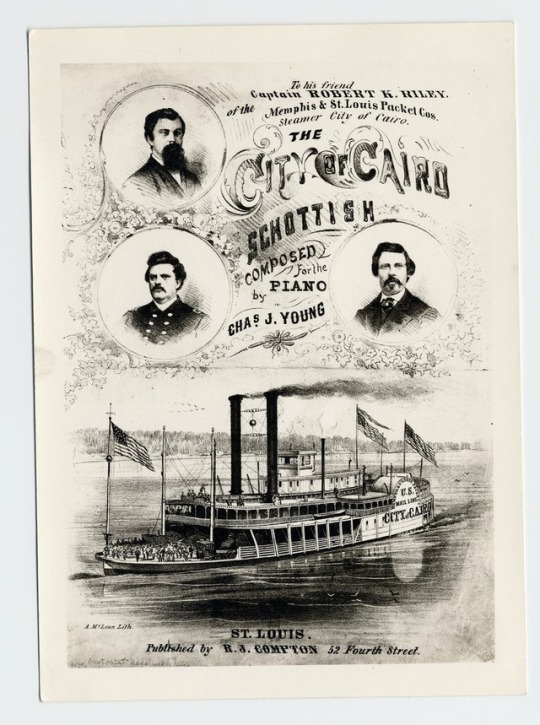
This is the cover page of a piece of mid-nineteenth century sheet music entitled “The City of Cairo Schottish.” The City of Cairo was a steamboat, depicted in the illustration at the foot of the page. A schottish is a form of music popular in the nineteenth century, which musicologists identify as a country dance originating in central Europe.
In a time before phonographs or other forms of recorded music became widely available to the public, Americans typically experienced music by live performance and/or participation. Sheet music like this was widely distributed and allowed individual musicians to keep up with the latest musical trends. According to the Oxford Companion to Music, the schottish (or schottische) became popular in the England in 1878 with the publication of Tom Turner’s “Dancing in the Barn Schottisch,“ and Americans tended to favor a variety of the form identified as a “military schottische.”
Mark Twain mentions this form of music and dance in one of his letters to his brother Orion, and indicates the extent to which Americans of the mid-nineteenth century made use of sheet music, performed music in their own homes, and often danced to it.
“Ma was delighted with her trip, but she was disgusted with the girlsfor allowing me to embrace and kiss them–and she was horrified at the Schottische as performed by Miss Castle and me. She was perfectly willing for me to dance until 12 o'clock at the imminent peril of my going to sleep on the after watch–but then she would top off with a very inconsistent sermon on dancing in general; ending with a terrific broadside aimed at the heresy of heresies, the Schottische.”
- Letter to Orion Clemens, 18 March 1861
No comments:
Post a Comment